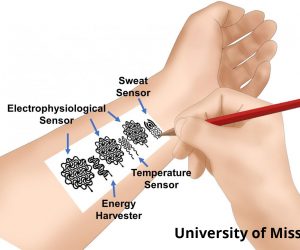
Gut Microbiota Could Predict Severity of COVID-19
Dr. Liji Thomas, MD via News-Medical Net – The COVID-19 pandemic is spreading to every corner of the world. But not everyone is falling sick at the same rate. A new study published on the preprint server medRxiv in April 2020 suggests that the composition of the gut microbiome could partially explain the difference in susceptibility. This adds a new dimension to what is currently known about the disease.
Is COVID-19 Linked to the Gut?
Clinicians have observed that more than 60% of patients with COVID-19 have diarrhea, nausea, and vomiting, and these symptoms predict a worse outcome overall.
Severe acute respiratory syndrome coronavirus 2 (SARS-CoV-2), the causative agent of COVID-19 disease, enters the human host cell by binding to the angiotensin-converting enzyme (ACE) 2, which acts as the viral receptor. This molecule is found at higher concentrations in the ileum and colon and regulates intestinal inflammation. ACE2 directly affects the gut microbiome, and indirectly the cardiopulmonary risk.
How Was the Study Done?
Older and sicker individuals are more likely to fall sick when exposed to this virus. The current study investigates the potential link between the gut microbiome and the clinical course and features of COVID-19.
The researchers selected a set of proteins that could act as biomarkers to forecast the progression to severe disease. However, they also examined whether these proteins could help understand what makes a person more or less susceptible to the disease, and what role the gut microbiota plays in regulating the levels of these biomarkers in healthy people.
Can the Gut Microbiome Predict Severe COVID-19?
The researchers suggest that in healthy people, the composition of the gut microbiome is highly predictive of the blood proteomic biomarkers that are linked to severe COVID-19.
The ‘cytokine storm’ (excessive levels of pro-inflammatory chemicals in the body) associated with severe COVID-19 should be treated effectively to reduce the fatality of the condition. The association of proteomic biomarkers with inflammatory molecules, especially in older age groups, indicates that the cytokine storm is a result of the underlying inflammation seen to be more common among this subgroup.
The researchers sum up: “The discovered core gut microbial features and related metabolites may serve as a potential preventive/treatment target for intervention, especially among those who are susceptible to the SARS-CoV-2 infection. They could also serve as potential therapeutic targets for drug development.”
This article has been modified. To read the original article click here.






